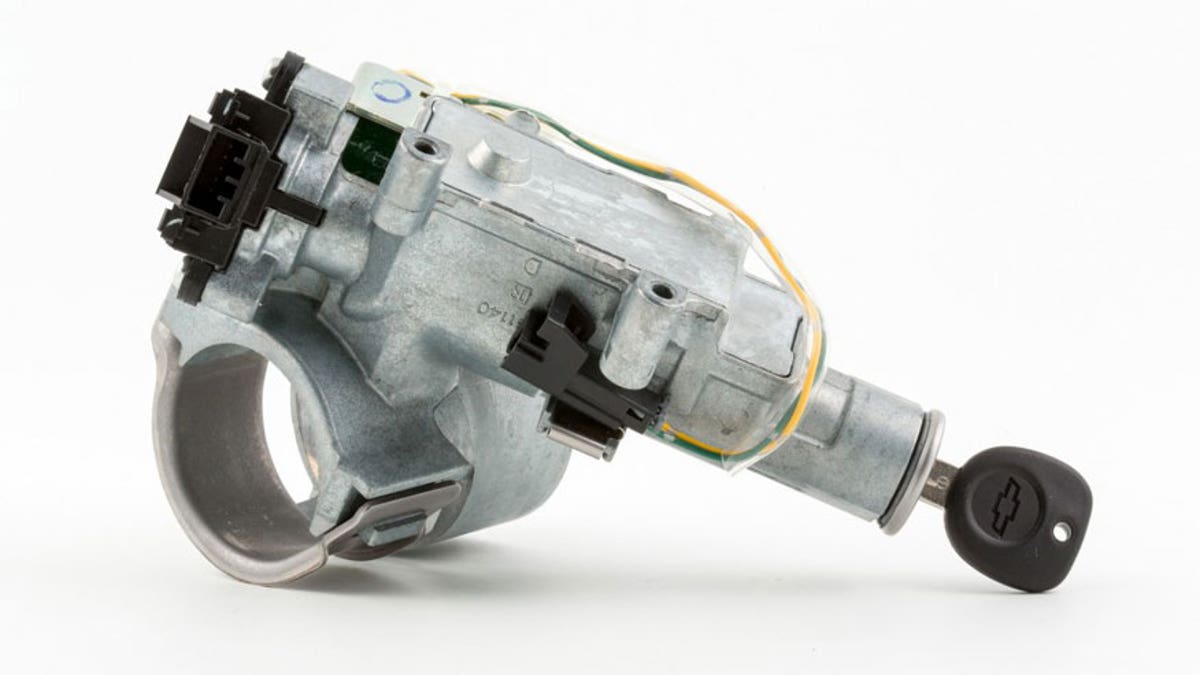
A GM ignition switch assembly. (GM)
An internal investigation into General Motors’ handling of an ignition switch defect connected to at least 13 deaths has determined that the eventual solution to the problem cost the company nothing.
GM has recalled 2.6 million vehicles due to a defective ignition switch, which could be turned off inadvertently by a light tap, or the weight of a heavy keychain.
A new switch was designed in 2006 featuring a different spring that made it harder to turn and, according to the report, the engineer in charge of the part, Ray DeGiorgio determined that “there was no cost associated with the change.”
In fact, the replacement part, supplied by Delphi, had been in use on another GM product since 2001.
Still unclear is why DeGiorgio, who has since been dismissed from the company, didn’t have a new part number issued that would’ve highlighted the change, as required by General Motors protocol at the time. DeGiorgio told investigators that he doesn't remember.
The updated ignition switch also included a new electrical components that incurred an cost unspecified in the report, but it was not instrumental in correcting the issue that led to cars unexpectedly losing power.
General Motors has dismissed 15 employees and disciplined five others in the wake of the investigation. GM CEO Mary Barra says the personnel worked in several areas including engineering, legal and public policy, and that a disproportionate number of them were senior executives or higher.
Barra described the conclusions of the investigation as “extremely thorough, brutally tough, and deeply troubling.”
Barra says that the report found no conspiracy to cover up facts or trade-off between safety and cost, but that the problem was misdiagnosed and that the individuals involved simply didn’t do enough, didn’t take responsibility or act with a sense of urgency to address the issue when it came to light.
"Pieces of information and clues didn't get put together," Barra said.
The automaker is establishing a compensation fund for victims of accidents caused by the defect and families of the victims. Details on the fund and eligibility rules will be revealed in several weeks.
"I hate sharing this with you just as much as you hate hearing it," Barra told employees in a town hall meeting at GM's suburban Detroit technical center. "But I want you to hear it. I want you to remember it. I want you to never forget it." Barra promised to "fix the failures in our system."
Barra says attorney Anton Valukas interviewed 230 employees and reviewed 41 million documents to produce the report, which also makes recommendations to avoid future safety problems.
The crisis began in February, when GM recalled 780,000 older-model Chevrolet Cobalt and Pontiac G5 small cars because of defective ignition switches. GM soon added the Saturn Ion and other small cars to the recall, which ballooned to 2.6 million cars worldwide.
The switches in the cars can slip out of the "run" position and shut down the engine. That disables the power-assisted steering and brakes and can cause drivers to lose control. It also disables the air bags. GM says at least 13 people have died in crashes linked to the problem, but trial lawyers suing the company put the death toll closer to 60.
Last month, GM paid a $35 million fine — the largest ever assessed by the National Highway Traffic Safety Administration — for failing to report the problem quickly to federal regulators. GM knew about problems with the ignition switches as early as 2001, and in 2005 it told dealers to tell owners to take excess items off their key chains so they wouldn't drag down the ignition switch. In 2006, an engineer at GM approved a change in the switch design, but didn't inform the government or change the corresponding part number. In subsequent years, that made it harder for other GM engineers to figure out why older Cobalts performed worse than newer ones.
The Associated Press contributed to this report



















